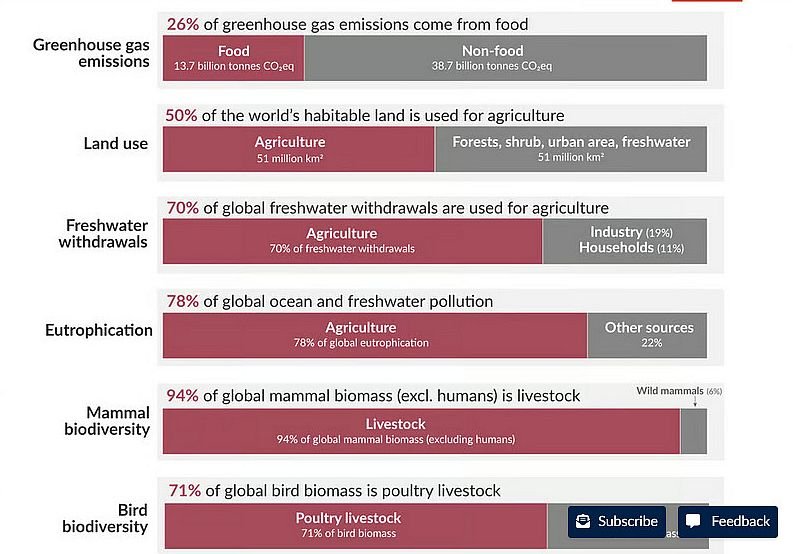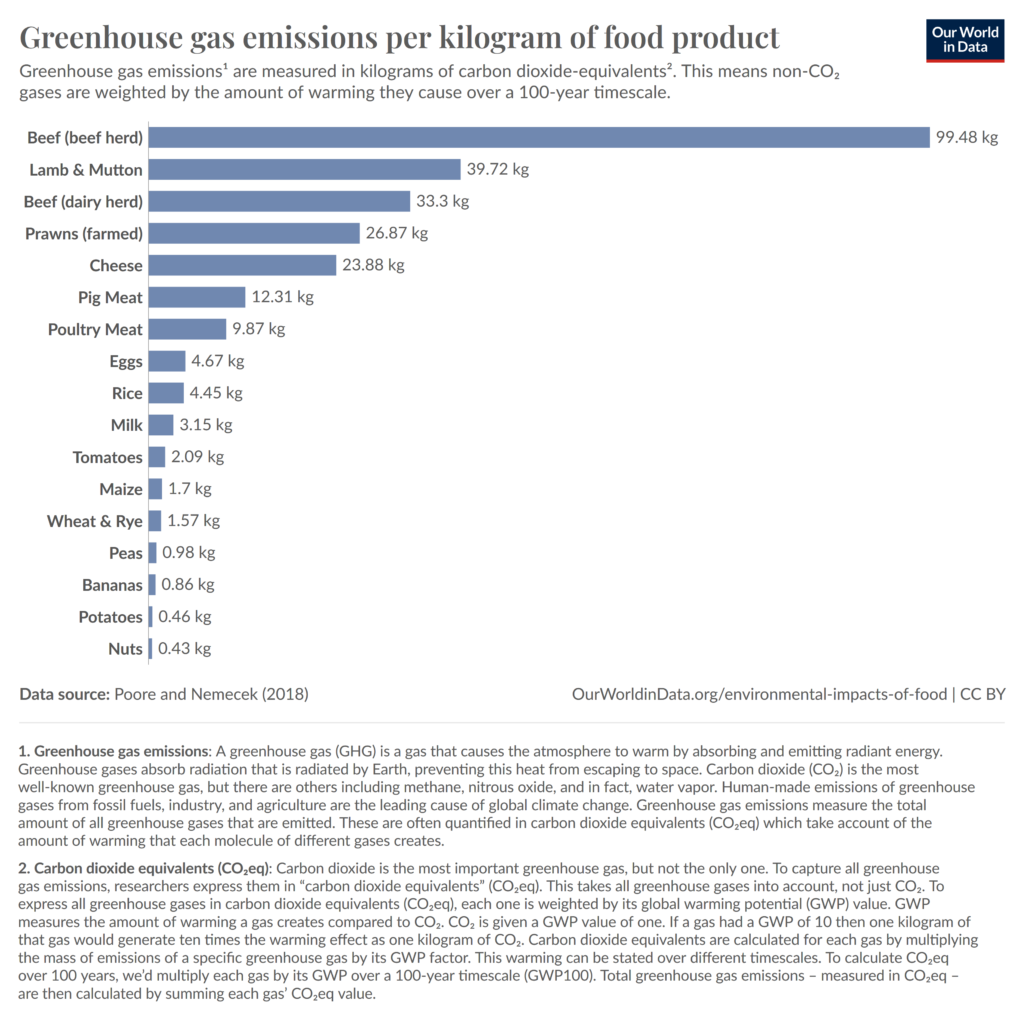Climate change has dramatically changed the way we produce and consume food. Rising greenhouse gas (GHG) emissions, added to the loss of forests, causing increases in CO₂ and methane levels. This exposes crops to serious environmental stress This decreases critical plant nutrients and places global food security at risk.
Agriculture is both a victim of, and contributor to, climate change. The production of about 25 percent of human-caused GHG are from agriculture due to the use of fossil-fueled machinery, the production of fertilizer, and methane from livestock.
The foods we eat also have a huge impact on the environment. Shifting eating habits is a prerequisite for limiting our carbon footprint to avoid the most severe impacts of climate change.

Is Higher CO₂ Really Good for Plants?
At first glance, elevated CO₂ appears to be good for plants—it makes them grow faster through photosynthesis. However, this accelerated growth often causes “nutrient dilution,” where crops absorb fewer essential nutrients like zinc, iron, and magnesium. This trend is observed in both cultivated and wild plants, with ripple effects on biodiversity, livestock, and human nutrition. Such changes could disrupt food webs and threaten ecosystems worldwide.
Addressing Declining Nutrition and Emissions
Farmers and researchers are looking into ways to fight back against falling plant nutrition and agricultural emissions: from developing nutrient-efficient crops and adopting advanced irrigation systems to creating new precision agriculture technologies, that will also help. The conservation of biodiversity will also be very instrumental in maintaining balanced food webs.

Pricing Greenhouse Gas-Intensive Foods
A carbon tax on food, based on the environmental impact of each item, as suggested by recent European research, could be a potential solution. For example, placing a cost on food products with high emissions—for example, beef and dairy—would significantly reduce agricultural emissions and could raise billions of dollars annually to compensate households for higher costs and incentives toward sustainable consumption.
This is a good policy approach to drive climate action and promote healthier diets. The biggest price rises would be for meat and dairy products; less carbon-intensive products, like vegetables, would remain relatively cheap.
Urgent Action Needed
More than 150 Nobel and World Food Prize Laureates called on world leaders to invest in new agricultural technologies to fight predicted severe food shortages. With the population of the world projected to grow by 1.5 billion people by the year 2050, immediate action is imperative to achieve sustainable, nutrition-rich, climate-resilient food systems.
The letter predicted humanity faced an “even more food insecure, unstable world” by mid-century unless the international community ramped up support for the latest research and innovation. So the world needs sustainable practices and policy reforms which can help build a resilient food system that will provide for both people and the planet.
Reference- Clean Technica, National Geographic, Phys.org, ScienceDirect, Nobel and World Food Prize Laureates letter






